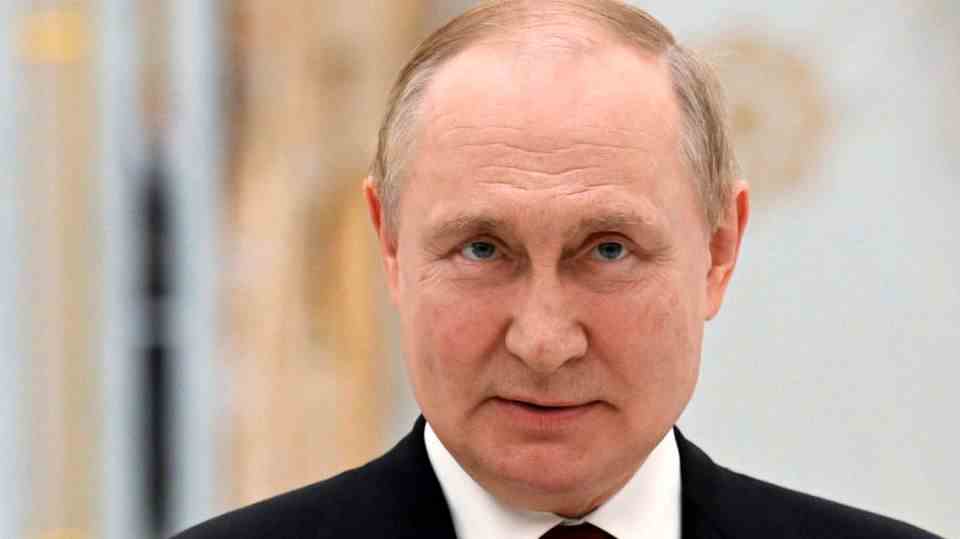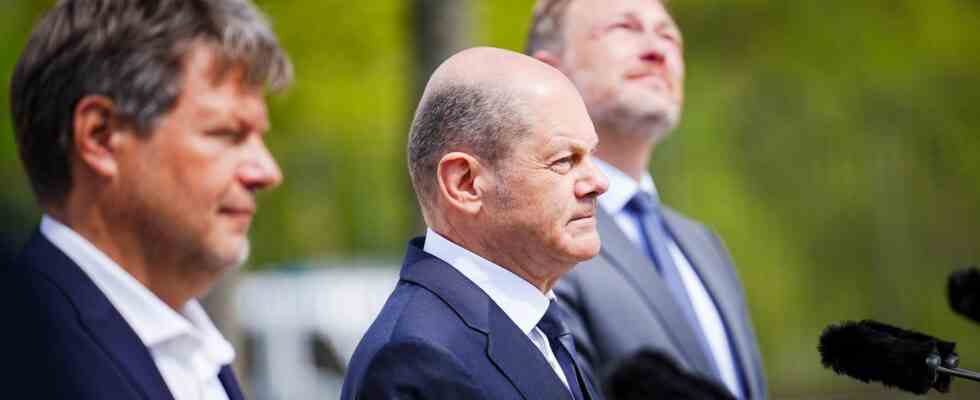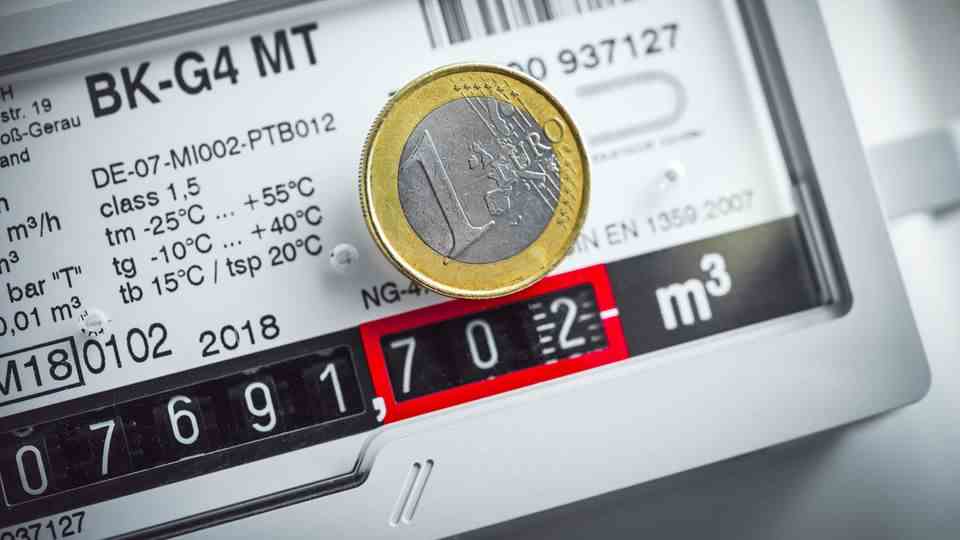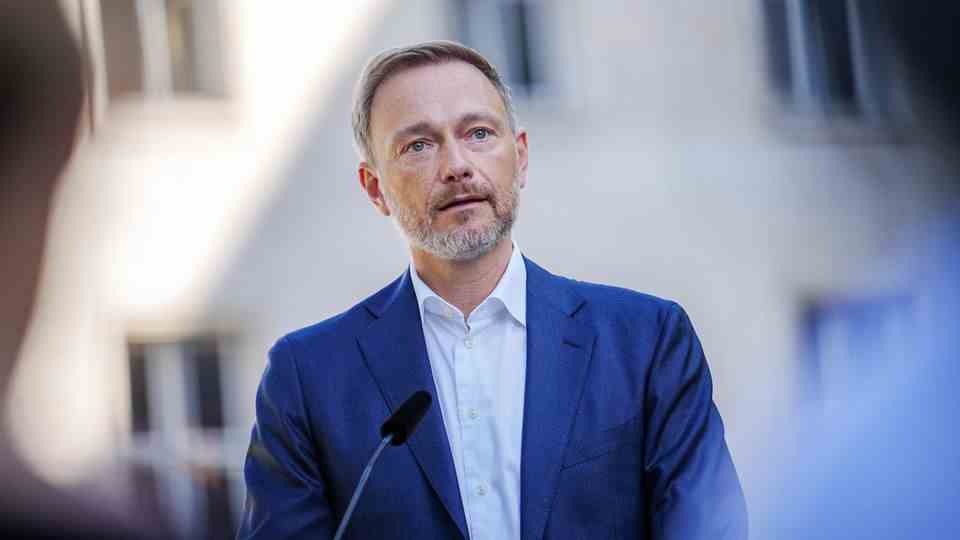Debate on exemptions
If you read carefully, you will notice that the traffic light coalition is crunching again
From left: Federal Minister of Economics Robert Habeck (Bündnis 90/Die Grünen), Federal Chancellor Olaf Scholz (SPD) and Federal Minister of Finance Christian Lindner (FDP)
© Kay Nietfeld/ / Picture Alliance
What is left to hold onto? Everyone in the traffic light coalition wants further relief – it’s just not clear what this should look like. The Chancellor tries to be a moderator.
It was a day of big words. “Now the time to act begins,” promised Christian Lindner. “We don’t want to limit ourselves as a partner, we want to expand,” said Robert Habeck. “This should be a morning when we set off on a new government,” said Olaf Scholz. The traffic light parties signed and sealed this 253 days ago, when they signed the coalition agreement.
That was a “turn of the tide” ago. The situation has changed. There is war in Europe. In Germany, concerns about cold apartments and cold progression are spreading. And the coalition partners are now adopting different tones:
- “We are different parties and, as a result of the coalition agreement, we did not gather at a unification party conference, but agreed to a joint government,” says Chancellor Scholz (SPD).
- “First of all, the coalition consists of three parties. The fact that they are different is the point of coalitions, otherwise we could merge right away,” says Federal Minister of Economics Habeck (Alliance 90 / The Greens).
- “The FDP is paying a price for the decision to form a traffic light coalition out of state political responsibility. (…) We entered this coalition because we had to, but we are in the coalition because we are doing good things,” says Federal Minister of Finance Lindner (FDP).
In short: The exhilaration of the beginning increasingly gives way to the realization that it is not at all self-evident to agree on one (or this) three-piece constellation. This has become clear again in the past few days.
Rhetorical precaution for an uncomfortable winter
In Berlin, there is a struggle about relief for citizens who have to adjust to significantly higher gas bills. From October, consumers will pay a surcharge of 2.4198 cents per kilowatt hour, which means additional costs of 576 euros per year for a single-family house with average consumption (you can read here what the gas levy means for the individual).
Do these prospects result in social upheavals, even a “winter of anger”, as research and politics fear? In his summer press conference, the chancellor said he did not believe there would be unrest. But of course that cannot be said with absolute certainty.
And that’s how you get an impression these days: Those responsible are taking precautions should it get uncomfortable in winter. Who is accountable then? When in doubt, the others, that seems to be the motto.
In a written request to Brussels, Federal Minister of Finance Lindner tried to exempt the gas levy from VAT and thus avert additional costs (of almost 100 euros) – ultimately in vain. Lindner probably hadn’t counted on great prospects of success anyway, if you read carefully: “The way the gas levy is designed, it is subject to value added tax under European law”, he said in the ZDF summer interview. Kind regards to Economics Minister Habeck, who designed the gas levy.
Habeck again, who, in the eyes of critics, knitted the gas levy with a hot needle, admitted that the gas surcharge was a “bitter medicine”. However, this is necessary to ensure security of supply. Germany has made itself dependent on cheap Russian gas and thus on a Russian president who disregards international law. “This model has failed,” said the Vice Chancellor. Kind regards to the previous government that promoted that business model.
On a confrontational course
But Habeck is also trying to make further relief the actual topic of conversation. After the gas levy was announced, Habeck said the associated costs would be the last straw for some. “It must not overflow,” said the Economics Minister. “That’s what it’s all about: to relieve these people in a targeted manner.” A few are already being set in motion, like the housing benefit reform announced by Chancellor Scholz, about further discussed. And others will be discussed.
Lindner had just outlined the cornerstones to reduce the cold progression. Noisy Federal Minister of Finance 48 million citizens would benefit from the plans. For the SPD and the Greens, however, the relief is too imprecise. she criticize the proposal as unfair. The reason: in absolute terms, high earners get more than low earners.
“I don’t see how we can argue in this situation that those who need less support are absolutely relieved,” said Habeck “Sueddeutsche Zeitung” and thus went on a confrontational course with Lindner. On Monday, when the amount of the gas levy was announced, he pushed: “Of course, the cold progression is also a relief.” But as long as the money is tight, you have to think carefully about what you spend it on.
Chancellor Scholz as crisis manager in the traffic light coalition
So what’s left to hold onto? Everyone in the coalition can gather behind relief plans – there is only still a need for discussion about the design.
And so Chancellor Scholz also has the role of crisis manager in his own coalition. At his summer press conference he welcomed Lindner’s relief plans, but made it clear that these should only be part of a larger service. It is clear that “we have to put together an overall package that includes all population groups”, said Scholz.

The additional costs due to the gas surcharge will also play a role in this. Both Habeck and Lindner announced that they wanted to prevent additional burdens from sales tax. “We don’t leave anyone alone with the higher costs”, promised Chancellor Scholz. His government will pass a third relief package “that not only addresses the costs of the surcharge, but goes beyond that,” he said on Monday during a visit to the Norwegian capital Oslo. “It is important that we do not stop at the relief packages that we have already launched.”
Scholz did not initially become more specific.




